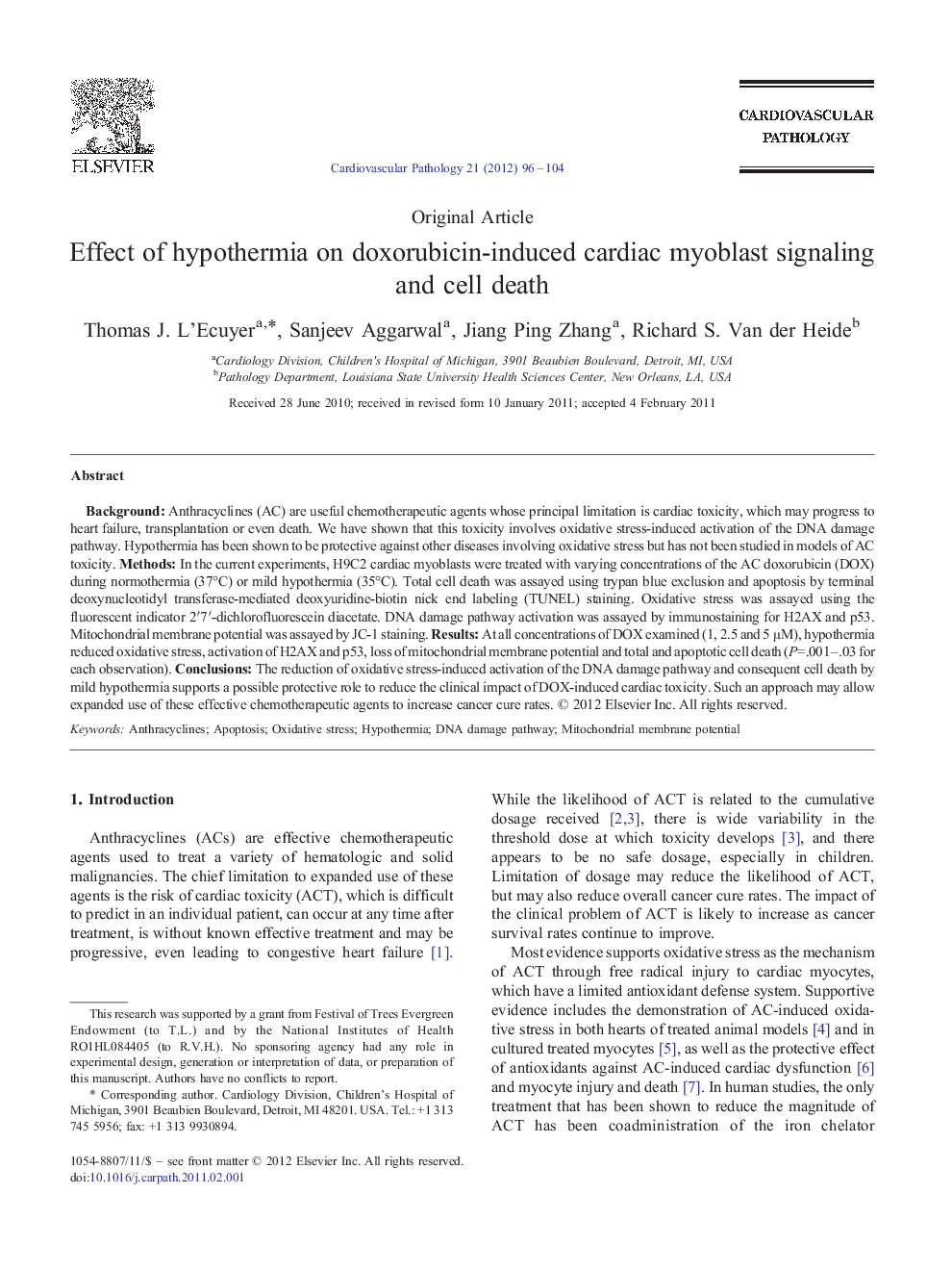| Article ID | Journal | Published Year | Pages | File Type |
|---|---|---|---|---|
| 2898791 | Cardiovascular Pathology | 2012 | 9 Pages |
BackgroundAnthracyclines (AC) are useful chemotherapeutic agents whose principal limitation is cardiac toxicity, which may progress to heart failure, transplantation or even death. We have shown that this toxicity involves oxidative stress-induced activation of the DNA damage pathway. Hypothermia has been shown to be protective against other diseases involving oxidative stress but has not been studied in models of AC toxicity.MethodsIn the current experiments, H9C2 cardiac myoblasts were treated with varying concentrations of the AC doxorubicin (DOX) during normothermia (37°C) or mild hypothermia (35°C). Total cell death was assayed using trypan blue exclusion and apoptosis by terminal deoxynucleotidyl transferase-mediated deoxyuridine-biotin nick end labeling (TUNEL) staining. Oxidative stress was assayed using the fluorescent indicator 2′7′-dichlorofluorescein diacetate. DNA damage pathway activation was assayed by immunostaining for H2AX and p53. Mitochondrial membrane potential was assayed by JC-1 staining.ResultsAt all concentrations of DOX examined (1, 2.5 and 5 μM), hypothermia reduced oxidative stress, activation of H2AX and p53, loss of mitochondrial membrane potential and total and apoptotic cell death (P=.001–.03 for each observation).ConclusionsThe reduction of oxidative stress-induced activation of the DNA damage pathway and consequent cell death by mild hypothermia supports a possible protective role to reduce the clinical impact of DOX-induced cardiac toxicity. Such an approach may allow expanded use of these effective chemotherapeutic agents to increase cancer cure rates.
